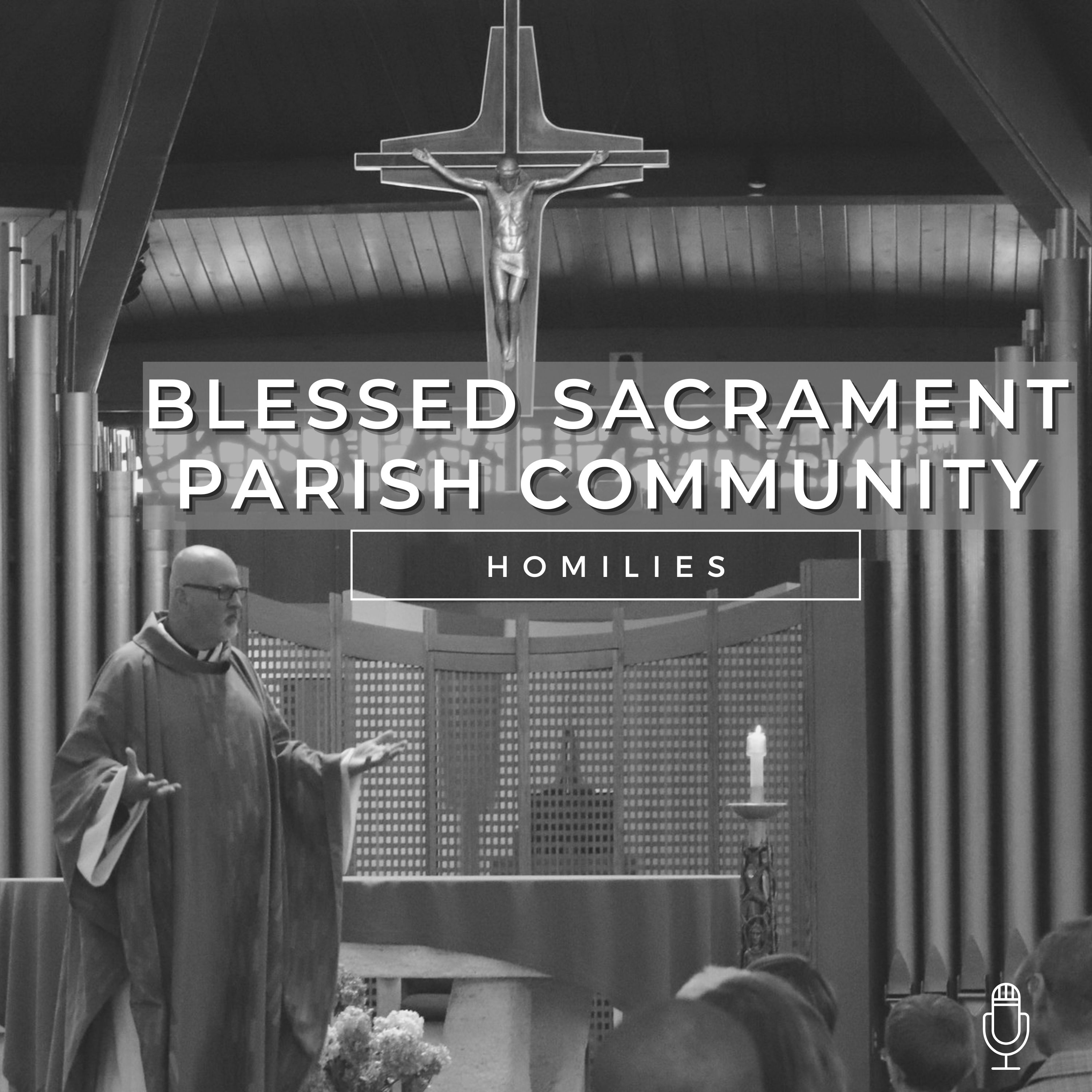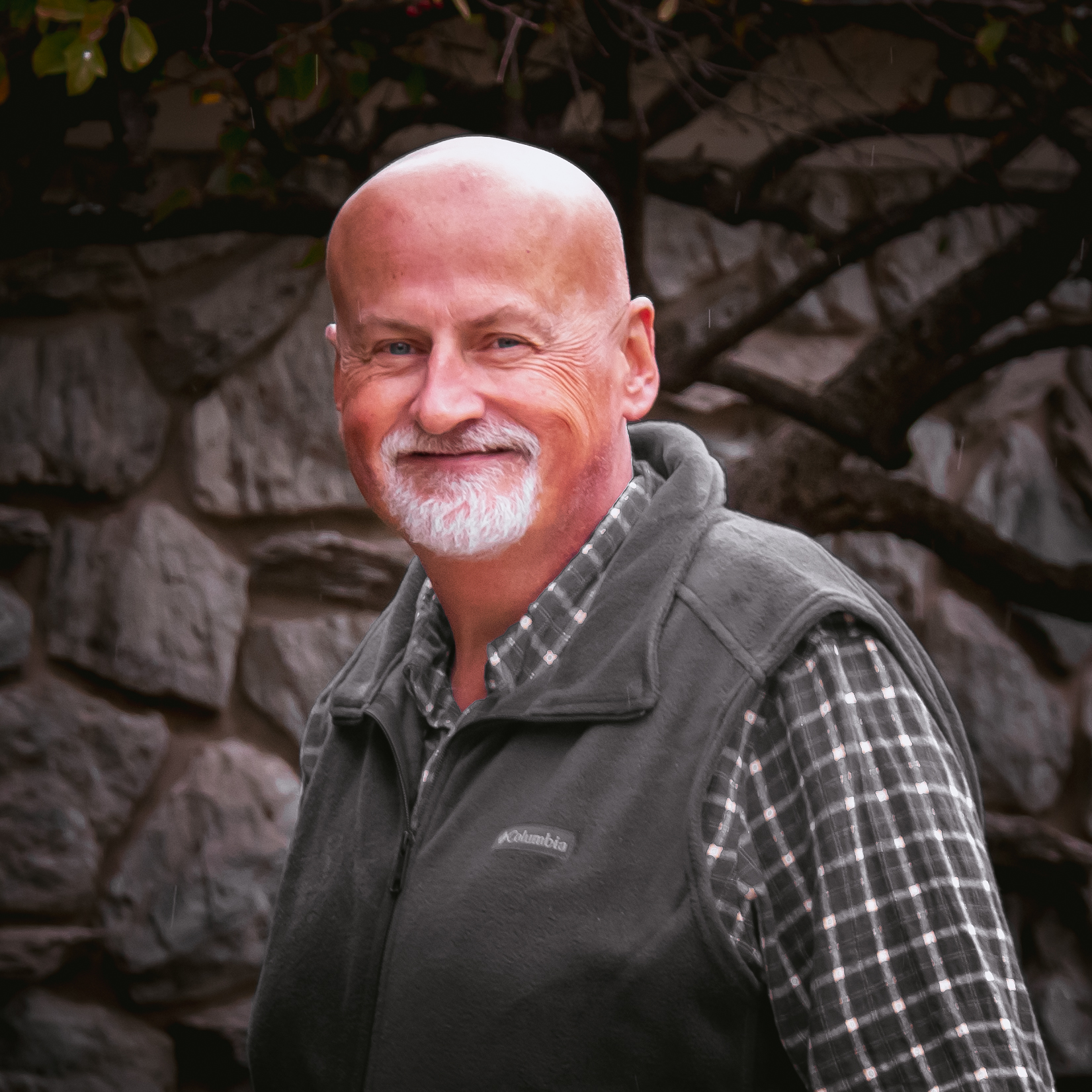Episode Transcript
[00:00:12] Speaker A: Welcome to the Blessed Sacrament Homilies podcast where our mission is to help everyone recognize and experience the presence of God. We hope you are nourished and encouraged by the word. Thank you for joining us.
[00:00:25] Speaker B: The Lord be with you.
A reading from the holy gospel according to Luke.
[00:00:31] Speaker A: Glory to you, Lord.
[00:00:33] Speaker B: The two disciples recounted what had taken place on the way and how Jesus had been made known to them in the breaking of bread.
While they were still speaking about this, he stood in their midst and said to them, peace be with you.
But they were startled and terrified and thought that what they were seeing was a ghost.
Then he said to them, why are you troubled? And why do questions arise in your hearts? Look at my hands and my feet, that it is I myself.
Touch me and see, because a ghost does not have flesh and bones. As you can see I have.
And as he said this, he showed them his hands and his feet while they were still incredulous for joy and were amazed. He asked them, have you anything here to eat?
They gave him a piece of baked fish and he took it and ate it in front of them.
He said to them, these are my words that I spoke to you while I was still with you, that everything written about me in the law of Moses and in the prophets and psalms must be fulfilled.
Then he opened their minds to understand the scriptures and he said to them, thus it is written that the Christ would suffer and rise from the dead on the third day, and that repentance for the forgiveness of sins would be preached in his name to all the nations, beginning from Jerusalem.
You are witnesses of these things. The gospel of the Lord.
[00:02:27] Speaker A: Praise to you, Lord Jesus Christ.
[00:02:31] Speaker B: I am a firm believer that there is no detail in the gospels that isn't there for a specific reason and to give us insight into into a particular aspect of our relationship with Christ.
And these post resurrection accounts of his appearances to his disciples give us some subtle details that teach us a profound truth, because we can see that there is something about Jesus resurrected body that is radically different, and there is also part of his resurrected body that is uniquely familiar.
We know it's different because of the amount of times his close disciples don't seem to recognize him.
The disciples on the road to Emmaus are walking along a road with him for a long ways, talking about everything that happened in Jerusalem over the previous days, and they don't know who he is and in fact they don't recognize him until they share a meal. He breaks bread and then all of a sudden their eyes are opened.
Or when he appears in their midst as they are gathered together and they don't quite even know he's there.
And then he reveals himself to them and shows them the marks of the crucifixion, and all of a sudden they recognize him.
But there is also something uniquely familiar, and that is he still takes nourishment. He broke bread with the disciples on the road to Emmaus. Here he asks for something to eat.
And it's good to know that Jesus ate healthy. He had baked fish, not fried.
So it's a mix of those two things, the familiar and the new and unique.
So what is that supposed to say to us now? What are we supposed to glean from those details?
That is that the presence of the risen Christ is familiar to us, but that the presence is also new and unique. So I'm going to give you a little technique you can use to recognize the presence of Christ.
Look to your left.
Look to your right.
Look behind you. Look in front of you. Those who don't do it, you never listen to anybody anyway, so I'm not worried about it, because these scriptures are meant to teach us that from now on we will recognize the risen Christ in each other.
That's where Christ is made present.
We know it from the conversion of St. Paul. When he hears that voice, Saul, Saul, why are you persecuting me? When he was persecuting the early church so we can see that truth, Christ was revealing to us once again that he was in his people, in us.
And so when we want to love Jesus as we say we do, that's the only real tangible way we can do it, is to love our brothers and sisters. That's the only way. The rest of it's all just in our head. It's just theory. But to love one another is to love Christ.
That's what these scriptures were meant to do to give us that understanding, that from now on we can rest assured that Christ will never leave us, only because we know he's in our brothers and sisters.
Now we know we also recognize Christ as we gather around the table and break bread, just like the disciples on the road to Emmaus.
But the reason why we do what we do here is so we can do what we do out here.
We have Christ, become one with us so that we can become one with one.


